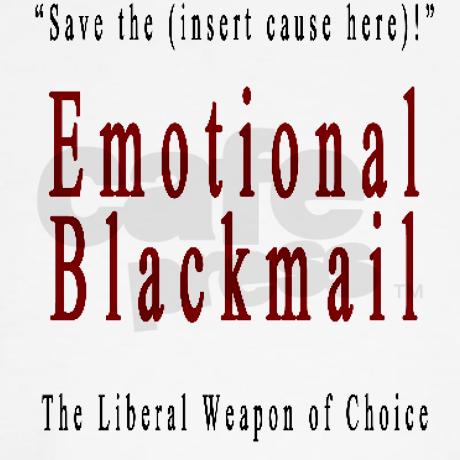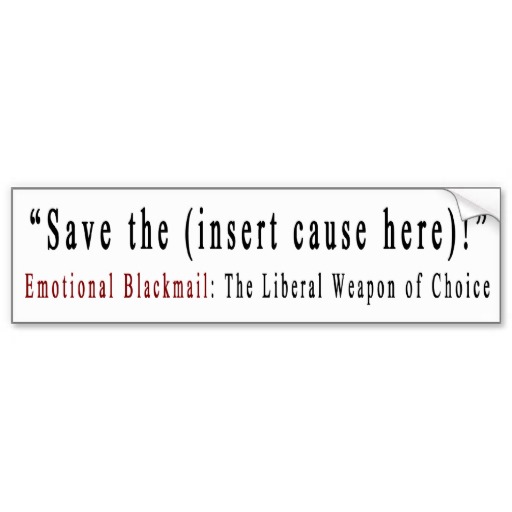How Speech Gets Suppressed, Reasoning Squelched, and Tyranny Established by the Thin-Skinned
 The lion’s share of current legal and political discourse favors social and legal “equality” between people with homosexual, transgender, or gender-undefined feelings (“LGBTQ people”) and people with heterosexual feelings and a sense of their sex that matches the body they were born with (“straight”). (Discussion of asexuals–people lacking sexual feelings–will have to wait for another occasion. They, too, are starting to assert their right to “equality.”) Complaints about passive or active opposition to the “gay equality” agenda, whether in personal or public contexts, are studded with such language as “offensive,” “invalidates citizens’ identity,” “disrespectful,” and “dignitary harm.” More and more, the possessor of truly American sensibilities gets the sense that the whole movement is based on mass emotional blackmail.
The lion’s share of current legal and political discourse favors social and legal “equality” between people with homosexual, transgender, or gender-undefined feelings (“LGBTQ people”) and people with heterosexual feelings and a sense of their sex that matches the body they were born with (“straight”). (Discussion of asexuals–people lacking sexual feelings–will have to wait for another occasion. They, too, are starting to assert their right to “equality.”) Complaints about passive or active opposition to the “gay equality” agenda, whether in personal or public contexts, are studded with such language as “offensive,” “invalidates citizens’ identity,” “disrespectful,” and “dignitary harm.” More and more, the possessor of truly American sensibilities gets the sense that the whole movement is based on mass emotional blackmail.
Freedom is not for cowards. The defense and use of the political and social liberty that is the American heritage requires thorough and ready discussion of issues. Self-government is a rough-and-tumble game. But the growing army of self-styled champions of the oppressed thinks otherwise. These heroes want to go well beyond placing and enforcing sensible and fair limitations on time, place, and manner of expression of opposing views. They want a society that is “safe” from threats to narcissistic self-inflation. And constitutional rights, correctly understood, must–through reinterpretation–yield to this utopian, infantile goal.
Wikipedia defines emotional blackmail as “a form of psychological manipulation, employing a mixture of threats, appeals, and emotionally punitive behavior to control an intimate.” Surely, the term can also apply to relations with non-intimates.
One subtype of emotional blackmailer is the sufferer. Such people “take the position that ‘if you don’t do what I want, I will suffer, and it will be your fault.'” Another term for this ploy is victim playing. The LGBTQ-affirmatives cannot prove that the feelings that distinguish them are normal, nor can they prove that their tendencies are inborn or necessarily permanent. So they concentrate on guilting the public instead.
There is something to learn by going back in time to the Sixties, when the Leftist orthodoxy we lightly call political correctness was beginning to gain prominence. In 1969 there was a Supreme Court case concerning the right of a small group of public school students to wear protest armbands in class. The majority opinion in Tinker v. Des Moines ICSD defended that right, making the case with such passages as this: “That they [public school administrators and teachers] are educating the young for citizenship is the reason for scrupulous protection of Constitutional freedoms of the individual, if we are not to strangle the free mind at its source and teach youths to discount important principles of government as mere platitudes” (Justice Abe Fortas, Court’s opinion). And this: “The classroom is peculiarly the ‘marketplace of ideas.’ The Nation’s future depends upon leaders trained through wide exposure to that robust exchange of ideas which discovers truth ‘out of a multitude of tongues, [rather] than through any kind of authoritative selection” (Justice William Brennan in the 1967 Keyishian v. Board of Regents, quoted by Fortas).
But there were two dissenting opinions as well, one of them by Justice Hugo Black. Black had grown up in the Appalachian region of Alabama, the youngest of eight. It could be that he wasn’t the most welcome of children; if so, he may have developed a sense of insecurity and an oversensitivity to certain kinds of discord among people. Early in his legal career he specialized in personal injury law. When he ran for political office he joined the Ku Klux Klan. “I would have joined any group,” he said later, “if it help me get votes.” These few facts hint that Black, like many in the legal and political fields, had an excessive desire to be popular.
In any case, in his dissent Black wrote: “Even a casual reading of the record shows that this armband [worn by one of the three children] did divert student’s minds from the regular lessons, and that talk, comments, etc. made [the child himself] “self-conscious” in attending school [wearing] his armband. While the absence of obscene remarks or boisterous and loud disorder perhaps justifies the Court’s statement that a few armband[-wearing] students did not actually ‘disrupt’ the classwork, I think the record overwhelming shows that the armbands did exactly what the elected school officials and principals foresaw they would, that is, took the students’ minds off their classwork and diverted them to thoughts about the highly emotional subject of the Vietnam war [that was the subject of the protest].”
We may set aside the question of whether minors have constitutional rights at all, and of whether children under the age of sixteen, as these children were, are likely to have thoughtful opinions on a particular war. What deserves attention here is the matter of to what extent the sender of a message is responsible for the reactions of the recipient(s).
Looked at from one angle, the school situation was one of protesters “disrupting” their classes, as nonroutine and apparently (subtly) disturbed reactions by fellow students were perceptible by the school staff. Looked at from another, though, the situation was one of nonprotesting students faced with a challenge–not so much of how to think about the war issue but of how to conduct themselves in the face of a political-social demonstration in their midst. They could have be helped to respond in any number of ways conducive to the educational process. And they could have been helped to maintain their poise–if their poise was an issue for the school–when in the presence of a potentially exciting (positively or negatively) communicative event.
What connects the Tinker opinions to political correctness today and the “gay equality” campaign in particular is the question of how much tolerance for disagreement–including major moral disagreement–people in a given context should be expected to have. (One form of tolerance is removing oneself from a group communicative interaction one finds personally intolerable, thus allowing it to continue uninterrupted.) How long has it been since we have heard the old saying, “If you can’t stand the heat, get out of the kitchen”?
With increasing thoroughness, the gay-affirmative crowd is demanding not just tolerance but affirmation from everyone everywhere. All bakers must bake and decorate cakes for gay weddings; all photographers must photograph gay couples in romantic poses. Even ministers must watch themselves when it comes to denouncing homosexuality from the pulpit. What was recently heretical is now orthodox.
What Americans need to do now is to get beyond the question of fairness–the imposition of the gay orthodoxy is blatantly unfair–to the psychology of the new “gay” inquisitors.
One of the world’s foremost authorities on homosexuality is psychologist Joseph Nicolosi. He is a psychotherapist and the author of several books on the subject. His article “Gay as Self-Reinvention” is instructive:
…. I wish to clarify my belief that there is no such thing as a gay person. Gay is a fictitious identity seized upon by an individual to resolve painful emotional challenges. The man who recognizes that he has a homosexual problem [see also Joseph Nicolosi, “Fathers of Male Homosexuals: A Collective Clinical Profile” and “The Meaning of Same-Sex Attraction,” at www.narth.com] and struggles to overcome it is not “gay.” He is simply, “homosexual.”
To believe in the concept of a gay identity as valid, a person must necessarily deny significant aspects of human reality. The foundation typically begins with a significant denial of human reality during childhood. ….
[Regarding males] [In many cases, t]he sensitive son [inadequately supported in his early masculine development by a father figure] seems to decide, “I can’t be male …. I will remain in my own androgynous world, my secret place of fantasy.” ….
We hear echoes of [the theme of gender identity confusion] over and over in gay literature–the repeated story of the pre-homosexual boy who is isolated and “on the outs” from male [peers], feeling different, insecure in his masculinity and alone, disenfranchised from father, and retreating back to mother. ….
[T]he pre-homosexual boy says to himself, “If my father makes me unimportant, [then] I [will] make him unimportant. If he rejects me, [then] I will reject him and all that he represents [masculinity, objective reality].” ….
Gay identity …. is a culturally approved process of self-reinvention by a group of people in order to mask their collective emotional hurts.
In 2014 America, people with psychosexual disorders have every reason to be confident of their ability to heal from them. Ex-gay/ex-transgender psychotherapy, counseling, and bibliotherapy (a fancy term for the patient reading psychological literature pertaining to his or her own case) are better and more widely available than ever. The National Association for Research and Therapy of Homosexuality (www.narth.com) has for over two decades led the fight for truth and liberty against Leftist oppression.
The urge to stifle challenge, whether political or personal, is not the product of any particular culture. It is a universal and human problem. Some of the best advice ever given on the subject of speech, conflict, and feelings came from founding father John Adams. In a 1765 essay he gave us words that should be engraved on walls and minds all over this country: “Be not intimidated … nor suffer yourselves to be wheedled out of your liberties by any pretense of politeness, delicacy, or decency. These, as they are often used, are but three different names for hypocrisy, chicanery, and cowardice.”
When will Americans realize that they do not have to yield to the emotional blackmailers–including the ones who sit in the White House, in Congress, or on the Supreme Court?
Sharon Kass is a writer, editor, and activist based in Washington, D.C. She has been doing ex-gay activist for over fifteen years. She may be reached at [email protected].


